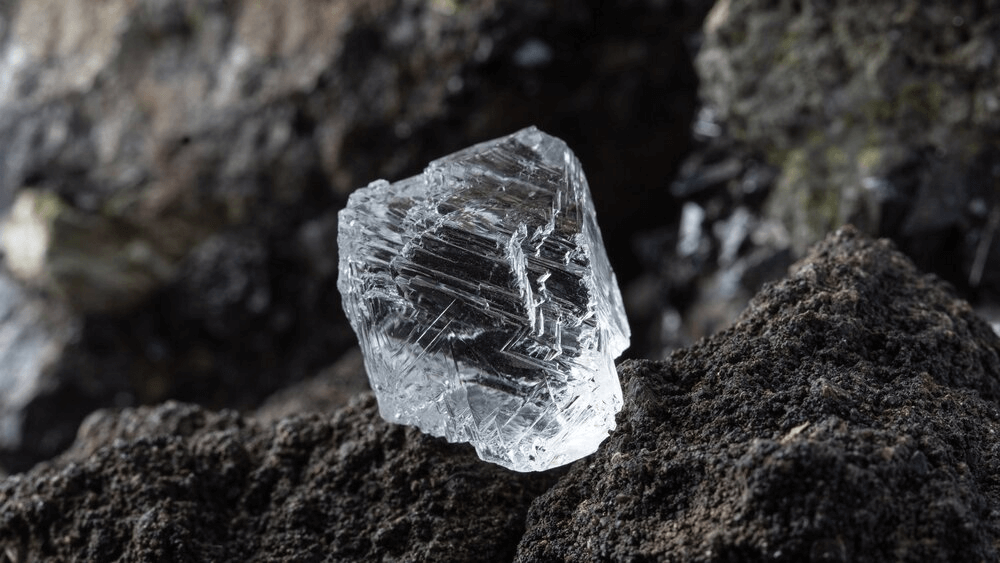Do Good with Your Diamond Ring: The RJC Impact

By Gary A.

Edited by Olivia H.
Published Aug 13, 2024
Edited on Mar 31, 2025
We all want to know how we can be as ethical as possible with our purcahses, and diamonds are no exception. Here’s what you should know about the Responsible Jewellery Council and Diamonds Do Good.

Navigate this guide:
- 7 Quick Tips for Finding an Ethical Diamond for Your Engagement Ring
- Introduction to Ethical Diamond Engagement Rings
- Diamonds Do Good: A Beacon of Hope
- The Responsible Jewellery Council (RJC) Explained
- Choosing an Ethical Engagement Ring
- The Role of Retailers and Consumers
- Our Expert Take
- 7 Frequently Asked Questions about Diamonds Do Good and the Responsible Jewellery Council (RJC)
7 Quick Tips for Finding an Ethical Diamond for Your Engagement Ring
Tip 1. RJC Certification:
Check for RJC Certification: Before purchasing, ensure that the jeweler or brand is RJC certified. This certification indicates that the company adheres to ethical, social, and environmental practices throughout the jewelry supply chain.
Tip 2. Diamond Origin and Traceability:
Ask for Provenance: Always inquire about the origin of the diamond. Ethical jewelers should be able to provide information about where the diamond was sourced. RJC members are required to provide information about the origin of the diamonds they sell.
Traceability Systems: Some jewelers have traceability systems in place that allow you to track the journey of your diamond from mine to market. This ensures that the diamond has been sourced responsibly.
Tip 3. Avoid Conflict Diamonds:
Kimberley Process Certification: Ensure that the diamond is compliant with the Kimberley Process, which aims to prevent the sale of diamonds funding conflict. While this is a basic standard, combining it with RJC certification offers a higher assurance of ethical sourcing.
Tip 4. Understand the 4 Cs but Add a 5th – Conscience:
While the traditional 4 Cs (Cut, Color, Clarity, Carat) are essential in choosing a diamond, add a 5th C – Conscience. Ensure that your purchase aligns with your values and the ethical treatment of people and the planet.
Tip 5. Transparency and Documentation:
Ask Questions: Don’t hesitate to ask the jeweler questions about their sourcing practices, labor policies, and environmental impact. Ethical jewelers should be transparent and willing to share this information.
Documentation: Always ask for documentation that verifies the ethical sourcing of the diamond, such as a certificate of origin or an RJC chain-of-custody certification.
Tip 6. Research and Reviews:
Do Your Homework: Before purchasing, research the jeweler or brand online. Look for customer reviews, news articles, or any red flags that might indicate unethical practices.
Third-Party Verification: Check if the jeweler has been verified or audited by third-party organizations (other than RJC) that vouch for their ethical practices.
Before we dive deeper into the specifics, here are some practical tips to help guide your decision-making process:
Now that you’ve got these practical tips, use Jeweler AI below to find the perfect engagement ring that suits your style and budget:
Introduction to Ethical Diamond Engagement Rings
Here’s a unique rewrite in a similar style:
In recent years, our collective conscience as consumers has sharpened considerably, for a myriad of compelling reasons. We find ourselves grappling with the moral implications of our purchasing habits – the disconnect between the corporations and practices our money inadvertently supports, and those we should be bolstering if we truly aim to make a positive impact on the world.
Put simply, the majority of us aspire to be ethical consumers. We yearn for the reassurance that the items we bring into our homes – be it coffee, chocolate, gadgets, apparel, or indeed, that life-changing engagement ring destined to adorn your partner’s finger for decades to come – haven’t been produced at the expense of human dignity or environmental integrity somewhere along the supply chain.
When it comes to the diamond industry specifically, most of us have at least a vague awareness that these precious stones, along with their artisanal miners, are vulnerable to exploitation unless the industry maintains unwavering vigilance in safeguarding them.
This concern extends to other materials you’re likely to encounter in your quest for the perfect engagement ring: precious metals such as gold, palladium, and platinum.
While these topics may seem daunting to those just dipping their toes into the world of fine jewelry, understanding these issues – and learning how to avoid unwittingly supporting unethical practices with your purchase – is every bit as crucial as selecting a stunning ring.
The Rise of Conscious Consumerism
Let’s face it, we’re living in an era where even your coffee has a backstory. So why should your engagement ring be any different? Conscious consumerism isn’t just a trend; it’s become as essential as remembering to bring your reusable bags to the grocery store. Only in this case, forgetting means potentially supporting practices that are about as ethical as cutting in line at Starbucks.
Diamonds Do Good: A Beacon of Hope
It’s not just a catchy name; it’s their mission statement.
The Transformative Journey of Diamonds Do Good
Diamonds Do Good started with a simple idea: what if buying a diamond could actually make the world a better place? It’s like the superhero origin story of the jewelry world. They’ve taken on the role of diamond industry vigilantes, fighting the good fight against unethical practices one sparkling stone at a time.
Every time you buy a diamond through Diamonds Do Good, you’re not just getting a pretty rock. You’re helping to fund education, healthcare, and economic development in diamond-producing communities. It’s like each carat comes with its own tiny cape and superhero theme music.
The Responsible Jewellery Council (RJC) Explained
Now, let’s shine a light on another key player in the ethical diamond game: the Responsible jewellery Council. Think of them as the strict but fair teachers of the jewelry world.
Setting the Gold Standard in Ethical Jewelry
The RJC doesn’t mess around when it comes to ethics. They’ve set standards higher than your great aunt’s expectations at family gatherings. From mining to retail, they make sure every step of the diamond’s journey is as squeaky clean as a newly polished gem.
Why RJC Certification Matters
Getting RJC certified is like earning a black belt in ethical practices. It’s not easy, and not everyone makes the cut. When you see that RJC stamp, you know you’re dealing with a company that takes ethics as seriously as a cat takes napping.
Choosing an Ethical Engagement Ring
So, you’re ready to pop the question and want to make sure your ring choice doesn’t pop any ethical bubbles. Here’s what you need to know.
Certification and Traceability: Beyond the 4 Cs
Remember the 4 Cs of diamond shopping? Well, it’s time to add two more: Certification and Conscience. Look for diamonds with proper certification and traceability. It’s like having a diamond’s family tree, but way less complicated and much more ethical.
Know the Source: The Ethical Origin of Diamonds
Knowing where your diamond comes from is as important as knowing where your food comes from. You wouldn’t eat sushi from a gas station, so why would you buy a diamond without knowing its origins? Look for diamonds with a clear, ethical source. It’s like farm-to-table, but farm-to-finger.
The Role of Retailers and Consumers
Both retailers and consumers have important parts to play.
Retailer Responsibility: Beyond the Sale
Ethical retailers don’t just sell you a ring; they sell you peace of mind. They’re like the tour guides of the diamond world, showing you the ethical sights and steering you away from the ethical potholes.
Consumer Power: Impact with Every Purchase
As a consumer, you have more power than you might think. Every time you choose an ethical diamond, you’re casting a vote for a better industry. It’s like being a superhero, but instead of a cape, you wear a stunning engagement ring.
Our Expert Take
Choosing an ethical diamond engagement ring doesn’t mean sacrificing beauty or quality. It’s about adding an extra layer of sparkle to your purchase – the kind that comes from knowing you’ve made a positive impact.
Remember, while exploring ethical options in person can be fun, online retailers like WillYou offer a pressure-free environment to browse and compare ethical diamonds. Plus, you can do it all from the comfort of your couch, possibly while wearing pajamas. Now that’s what we call ethical and comfortable!
So go forth, find that perfect ethical diamond, and prepare to pop the question. Your conscience (and your soon-to-be fiancé) will thank you. After all, nothing says “I love you” quite like a ring that loves the world back.
7 Frequently Asked Questions about Diamonds Do Good and the Responsible Jewellery Council (RJC)
- Q: What is Diamonds Do Good?
- A: Diamonds Do Good is a global initiative focused on supporting community development and environmental stewardship in diamond mining areas. It emphasizes the positive impacts of diamonds on these communities, promoting ethical practices in the industry.
- Q: How does the Responsible Jewellery Council (RJC) contribute to the diamond industry?
- A: The RJC sets standards for ethical, social, and environmental practices across the jewelry supply chain. It certifies members who meet these standards, ensuring responsible business practices in the diamond, gold, and platinum group metals industries.
- Q: Can I trace the origin of my diamond through Diamonds Do Good or the RJC?
- A: Both organisations advocate for traceability in the diamond supply chain. Diamonds certified by RJC-member companies often come with information regarding their origin, ensuring they are ethically sourced and conflict-free.
- Q: What should I look for in a diamond’s certification for ethical assurance?
- A: Look for certifications that include information on the diamond’s origin, compliance with the Kimberley Process, and adherence to ethical standards set by organizations like the RJC. This ensures the diamond is responsibly sourced.
- Q: Are Diamonds Do Good and RJC certifications the same?
- A: No, they serve different but complementary purposes. Diamonds Do Good focuses on the positive impacts of diamonds in mining communities, while the RJC provides certifications to companies meeting strict ethical, social, and environmental standards.
- Q: How can I ensure the diamond I purchase supports community development?
- A: Choose diamonds from retailers or brands associated with Diamonds Do Good, as they contribute to community development projects in diamond mining areas. Look for evidence of these contributions when making your purchase.
- Q: What does it mean if a jeweler is an RJC member?
- A: An RJC membership indicates that the jeweler has committed to and been audited against the RJC’s Code of Practices, which includes ethical, social, and environmental standards. It reflects the jeweler’s dedication to responsible business practices.
Empower love with Jeweler AI: Discover ethical rings that do good!
FOLLOW-UP GUIDE SERIES


